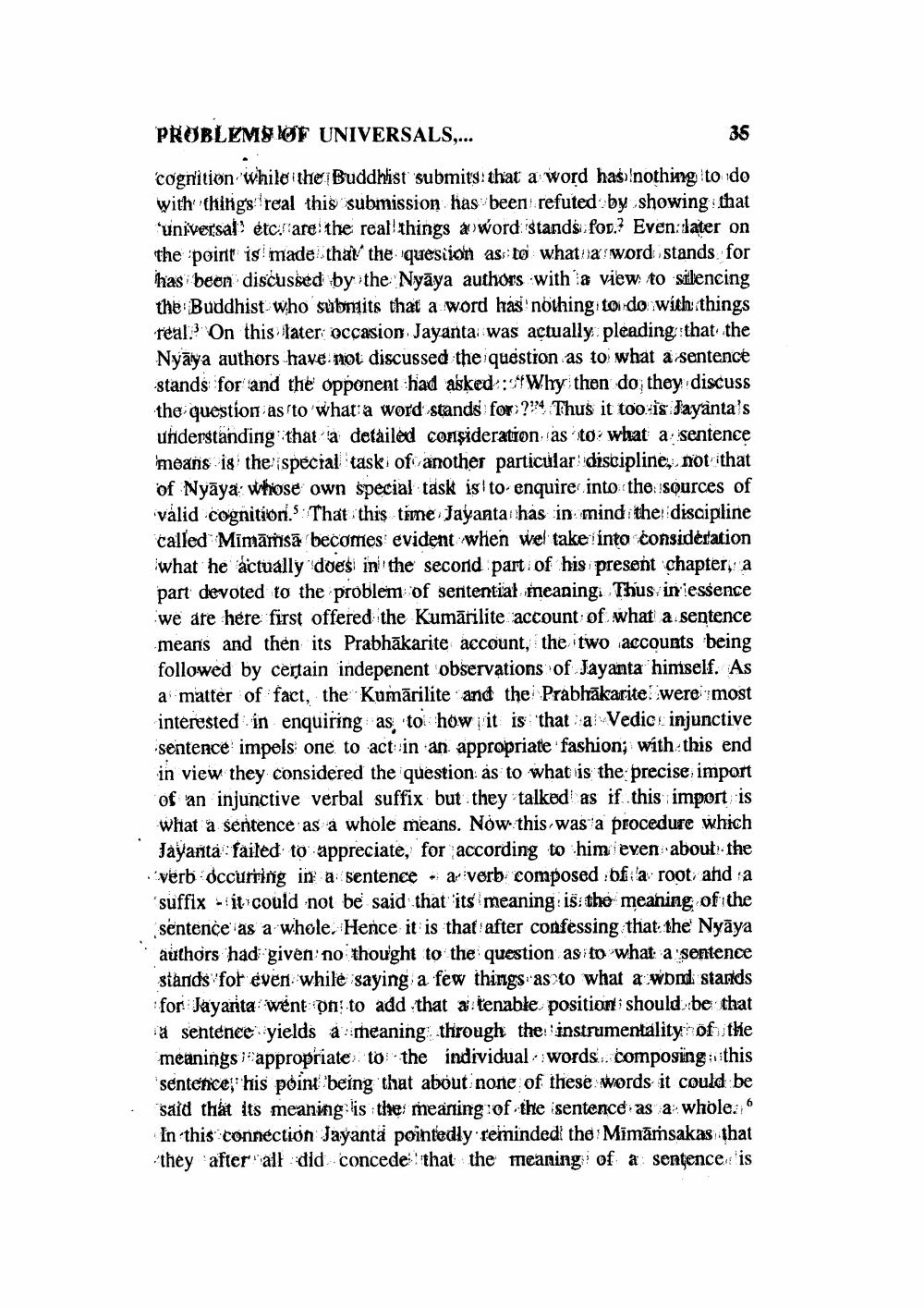________________
PROBLEMS OF UNIVERSALS,...
36
cognition while the Buddhist submits that a word has nothing to do with things'real this submission has been refuted by showing that
universal etc. are the real things a word stands fod.? Even:flater on the point is made that the question as to what a word stands for has been discussed by the Nyāya authors with a view to silencing the Buddhist who submits that a word has nothing to do with things real? On this later occasion Jayanta was actually pleading that the Nyāya authors have not discussed the question as to what a sentence stands for and the opponent had asked: Why then do; they discuss the question as to what a word stands for, ???4 Thus it too-is Jayanta's understanding that a detailed consideration as to what a sentence means is the special task of another particular discipline, not that of Nyāya: whose own special task is to enquire into the sources of válid cognition. That this time Jayanta has in mind the discipline called Mimāmsā becomes evident when wel take into consideration what he actually does in the second part of his present chapter, a part devoted to the problem of sentential meaning. Thus, in essence we are here first offered the Kumārilite account of what a sentence means and then its Prabhākarite account, the two accounts being followed by certain indepenent observations of Jayanta himself. As a matter of fact, the Kumārilite and the Prabhākarite were most interested in enquiring as to how it is that a Vedic injunctive sentence impels one to act in an appropriate fashion; with this end in view they considered the question as to what is the precise import of an injunctive verbal suffix but they talked as if this import is what a sentence as a whole means. Now this was a procedure which Jayanta failed to appreciate, for according to him even about the verb dccurring in a sentence a verb composed of a root, and a suffix - it could not be said that its meaning is the meaning of the sentence as a whole. Hence it is that after confessing that the Nyāya authors had given no thought to the question as to what a sentence stands fot even while saying a few things as to what a wond stands for Jayarita went on to add that a tenable position should be that à sentence yields a meaning through the instrumentality of the meanings appropriate to the individual - words, composing this sentence his point being that about none of these words it could be said that its meaning is the meaning of the sentence as a whole. 6 In this connection Jayantà pointedly reminded the Mimāmsakas that they after all did concede that the meaning of a sentence is




